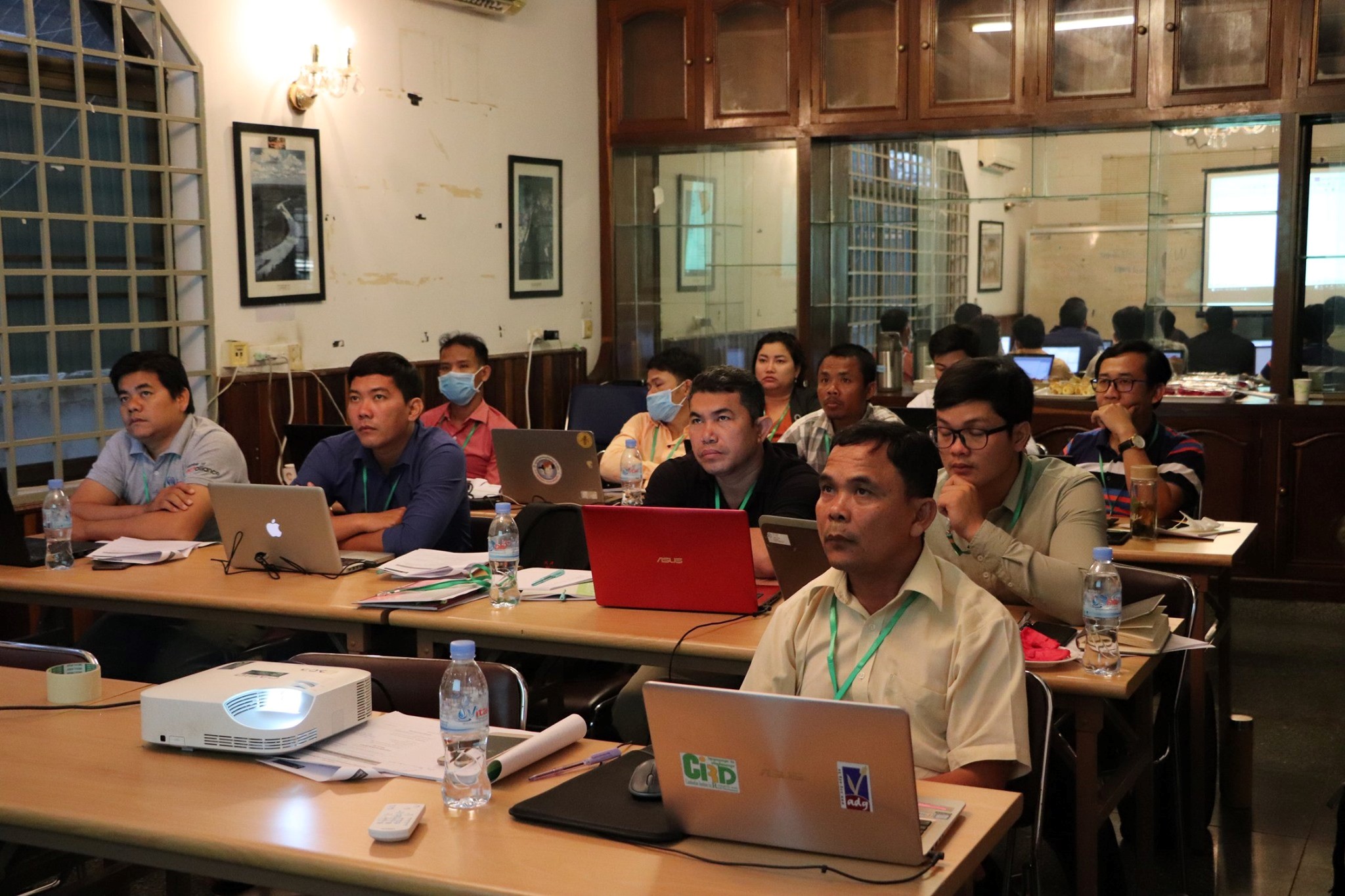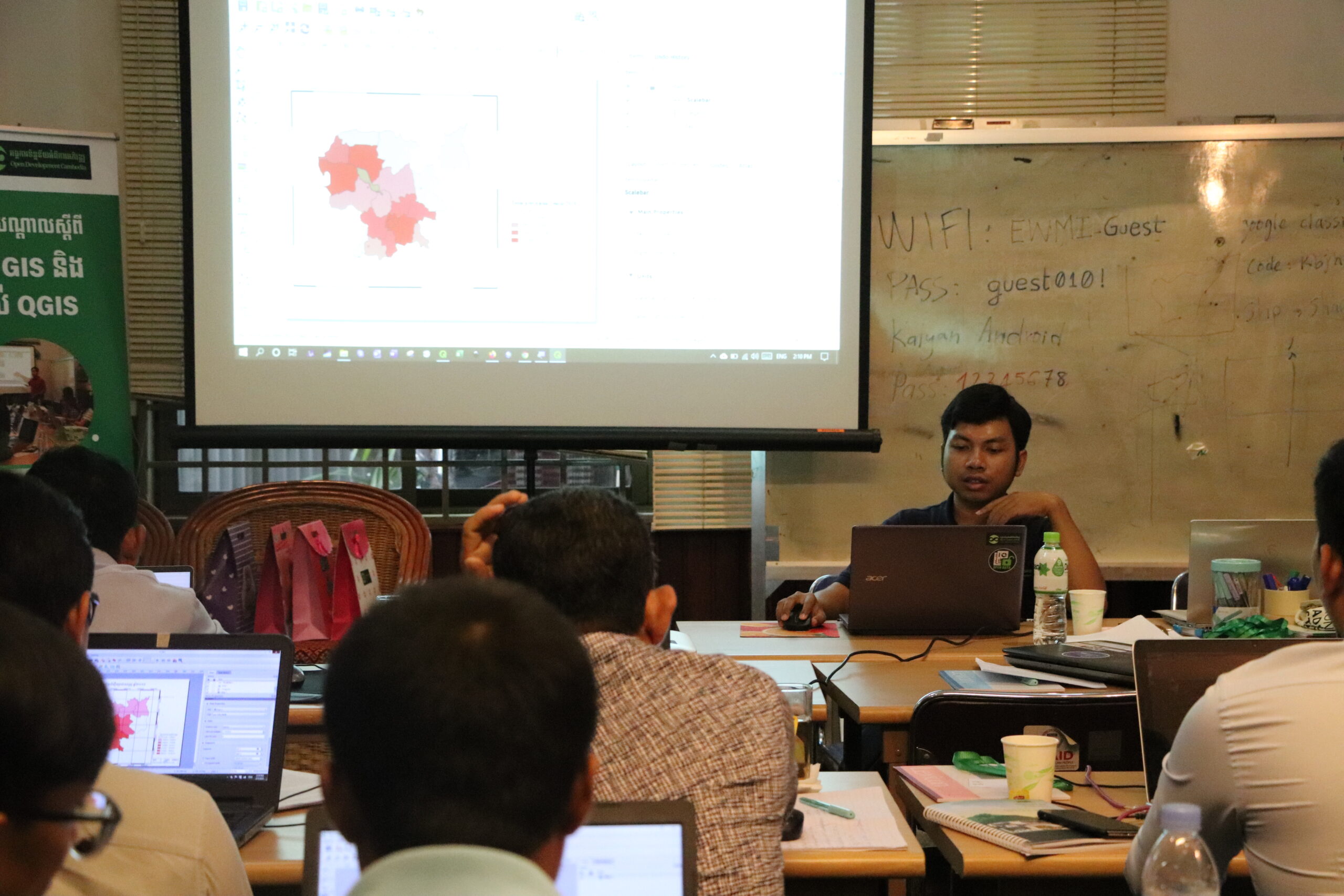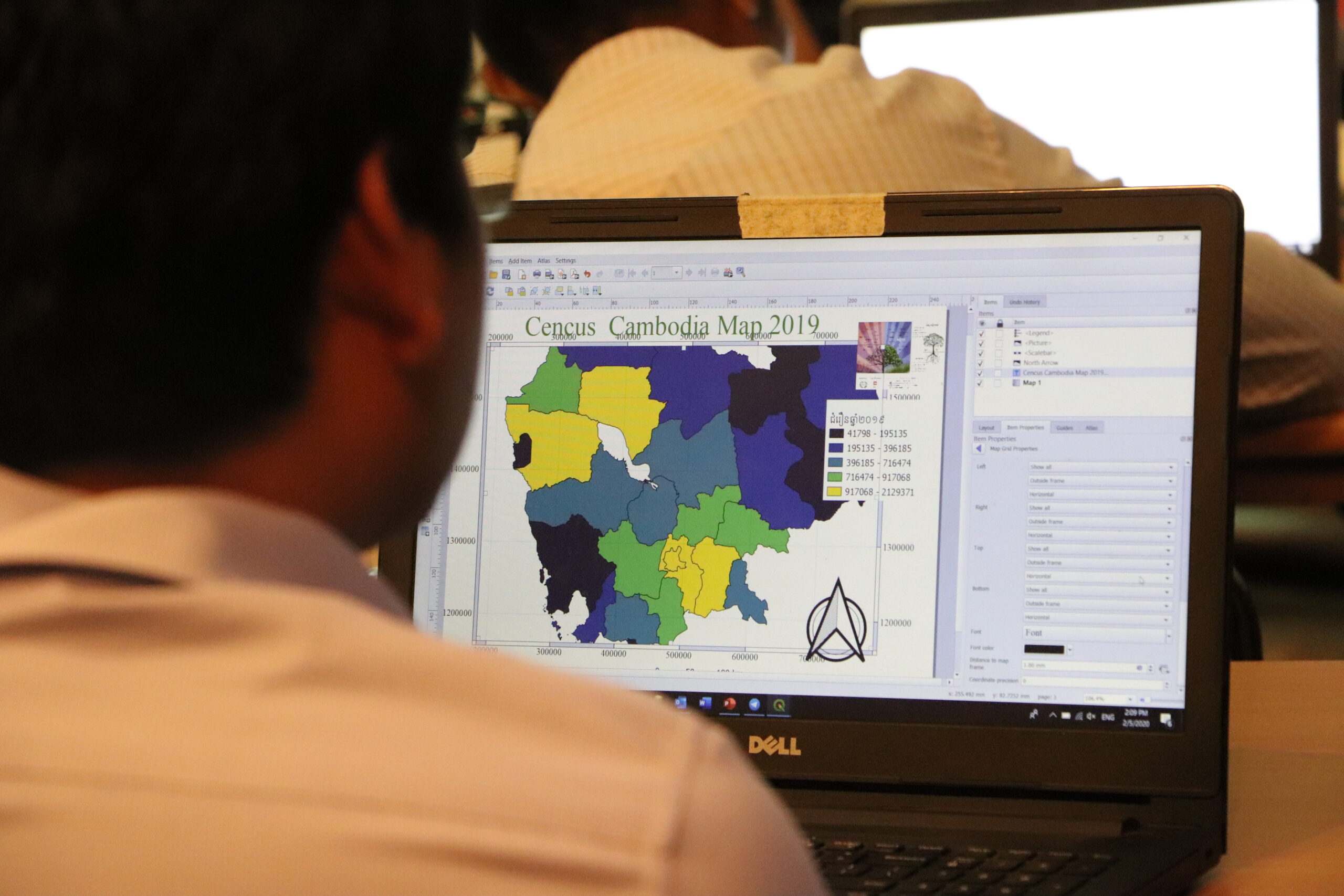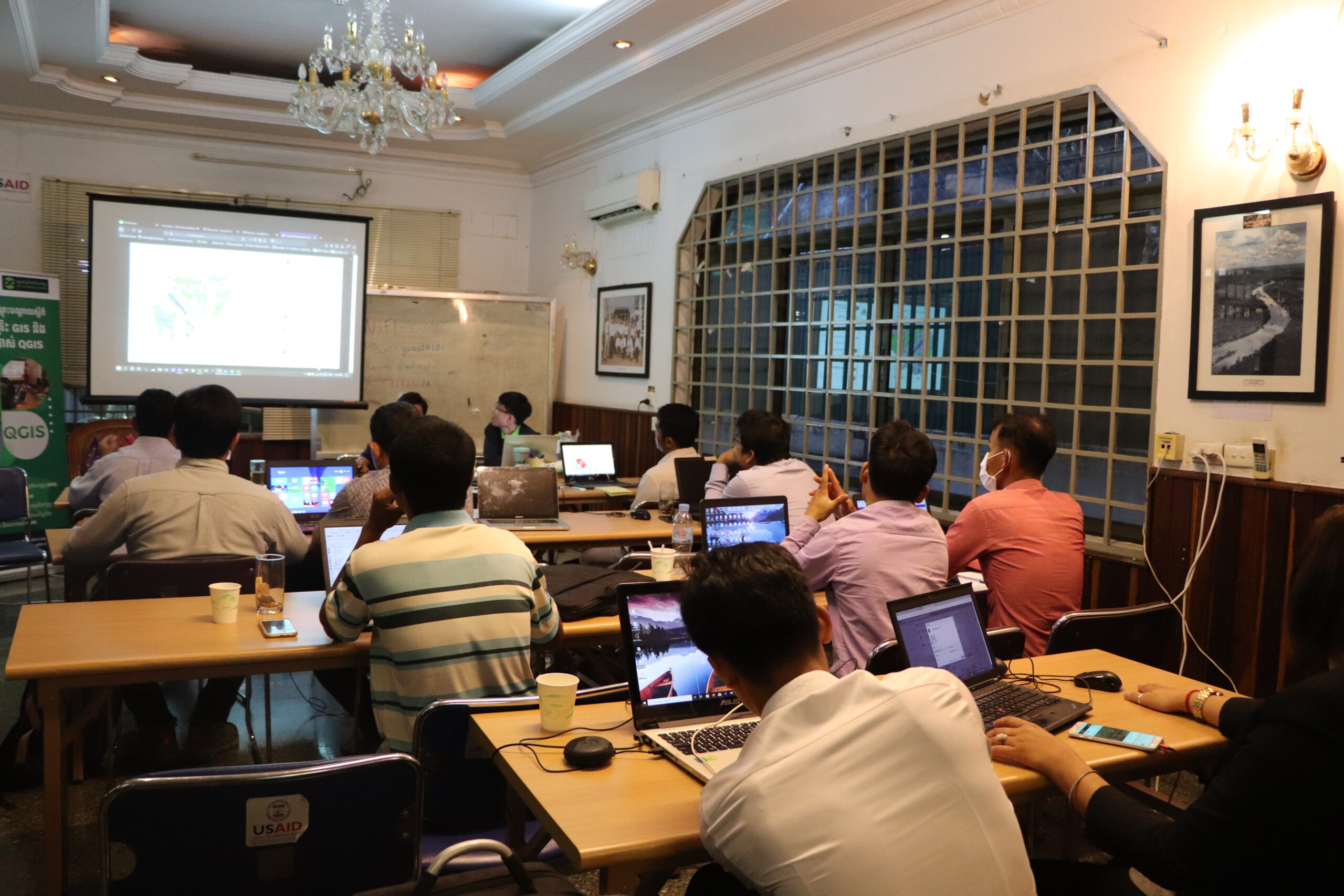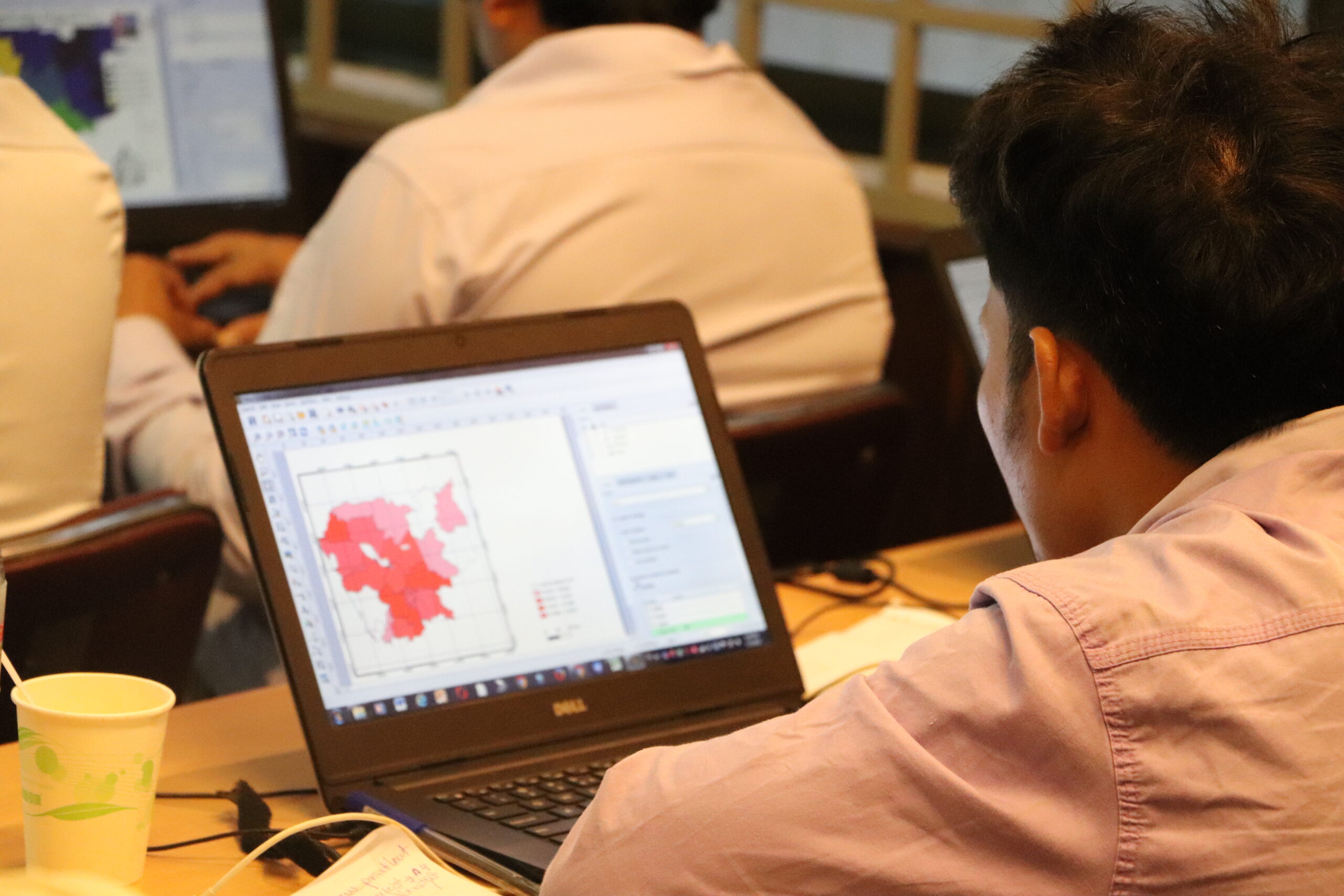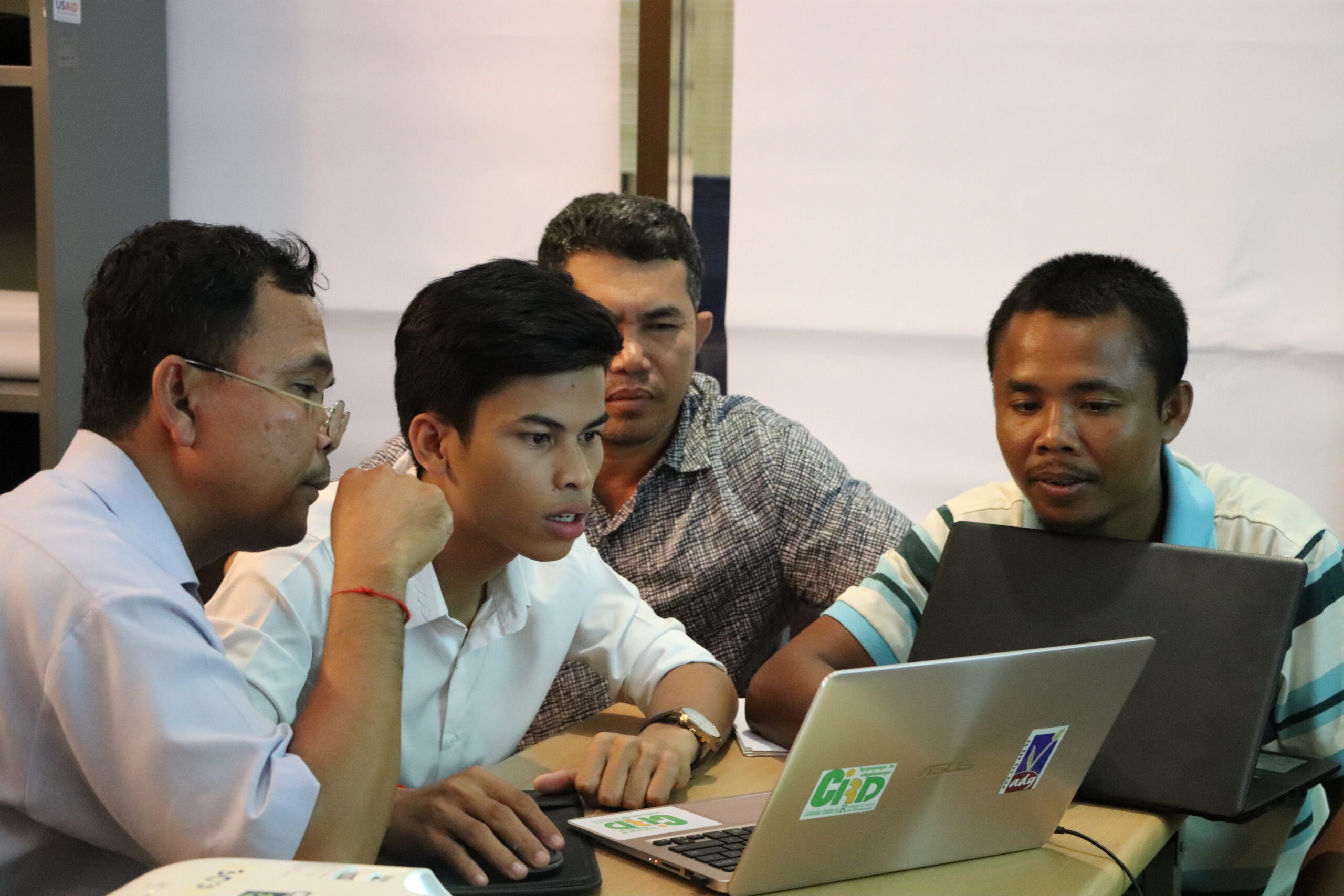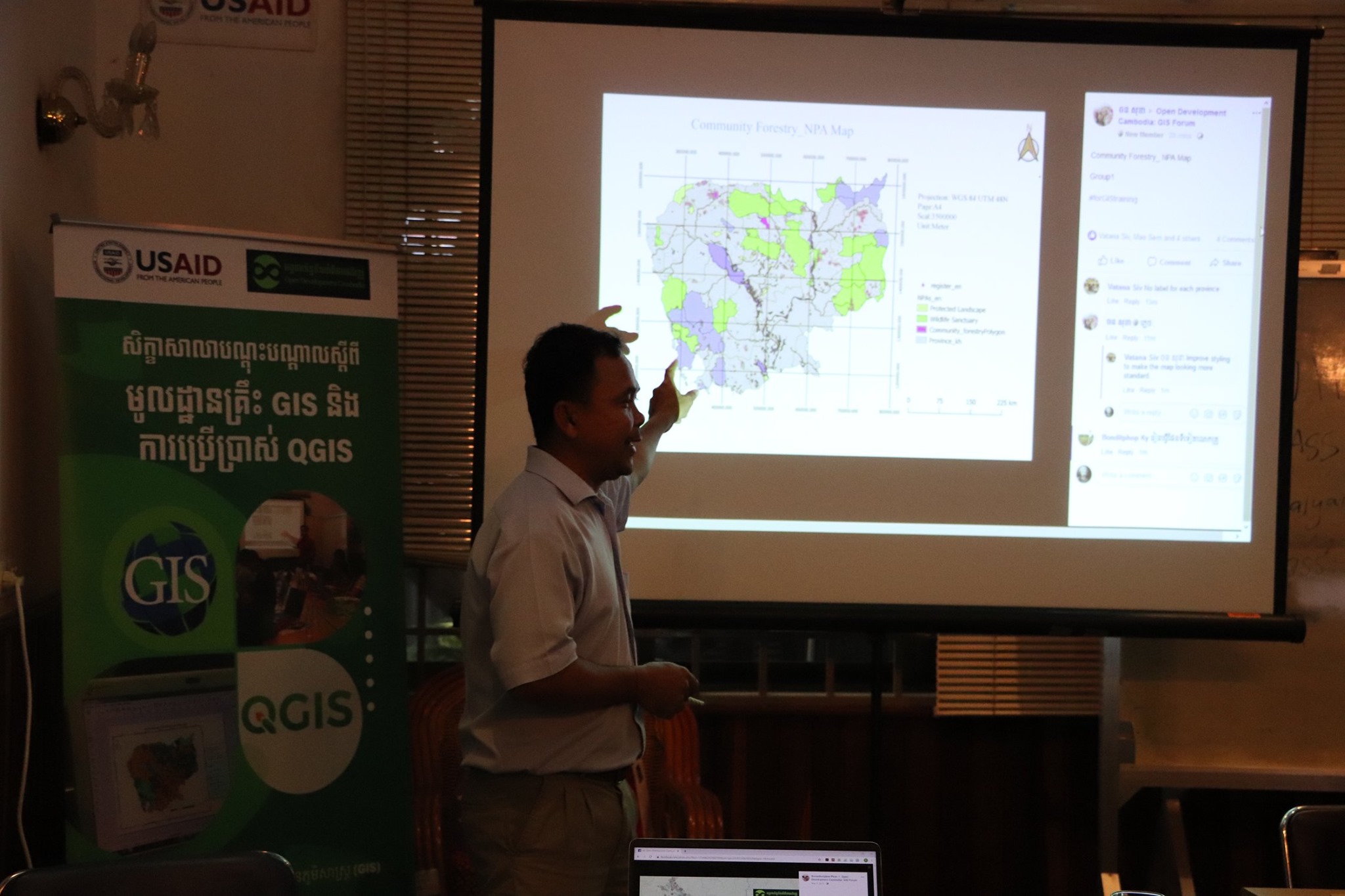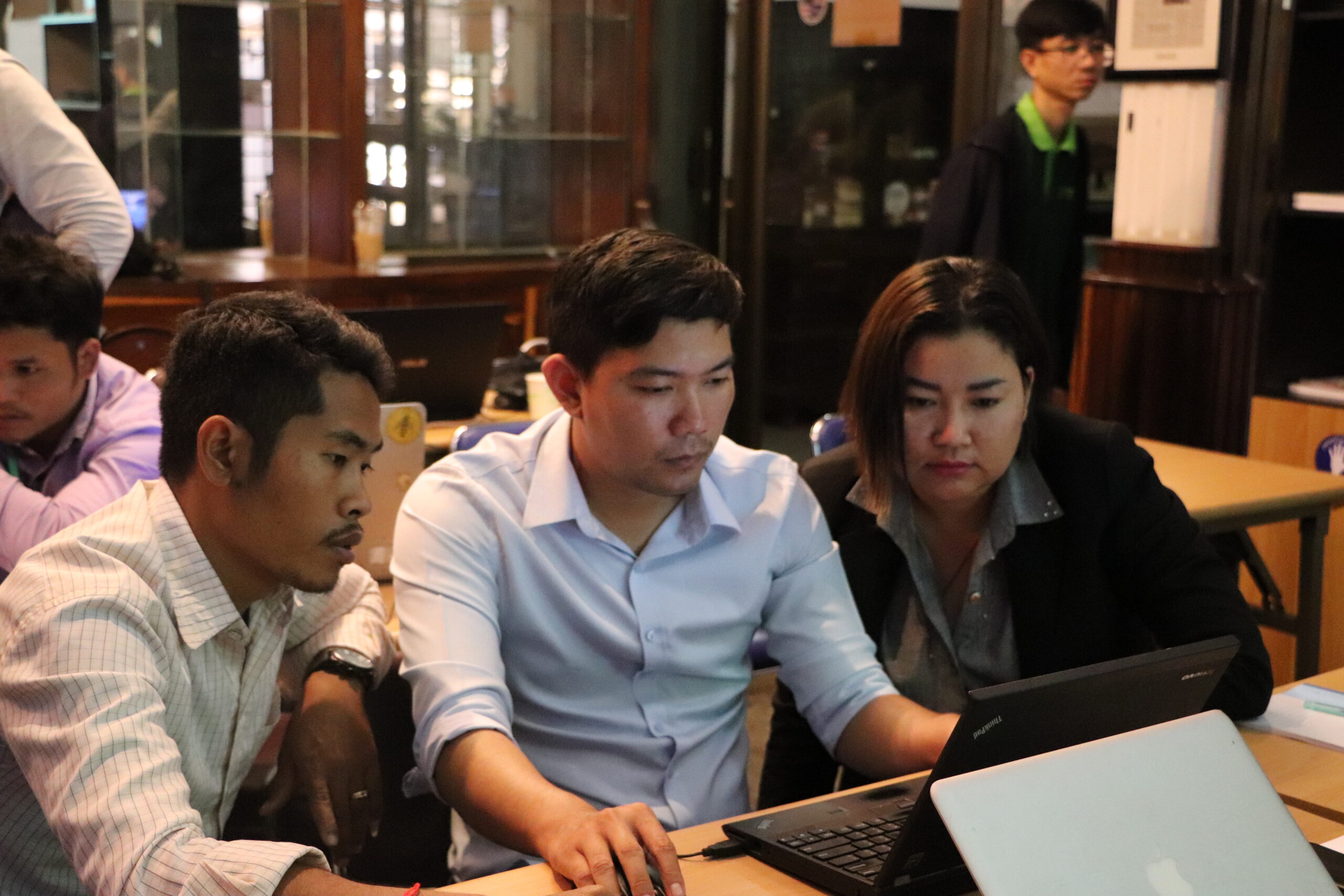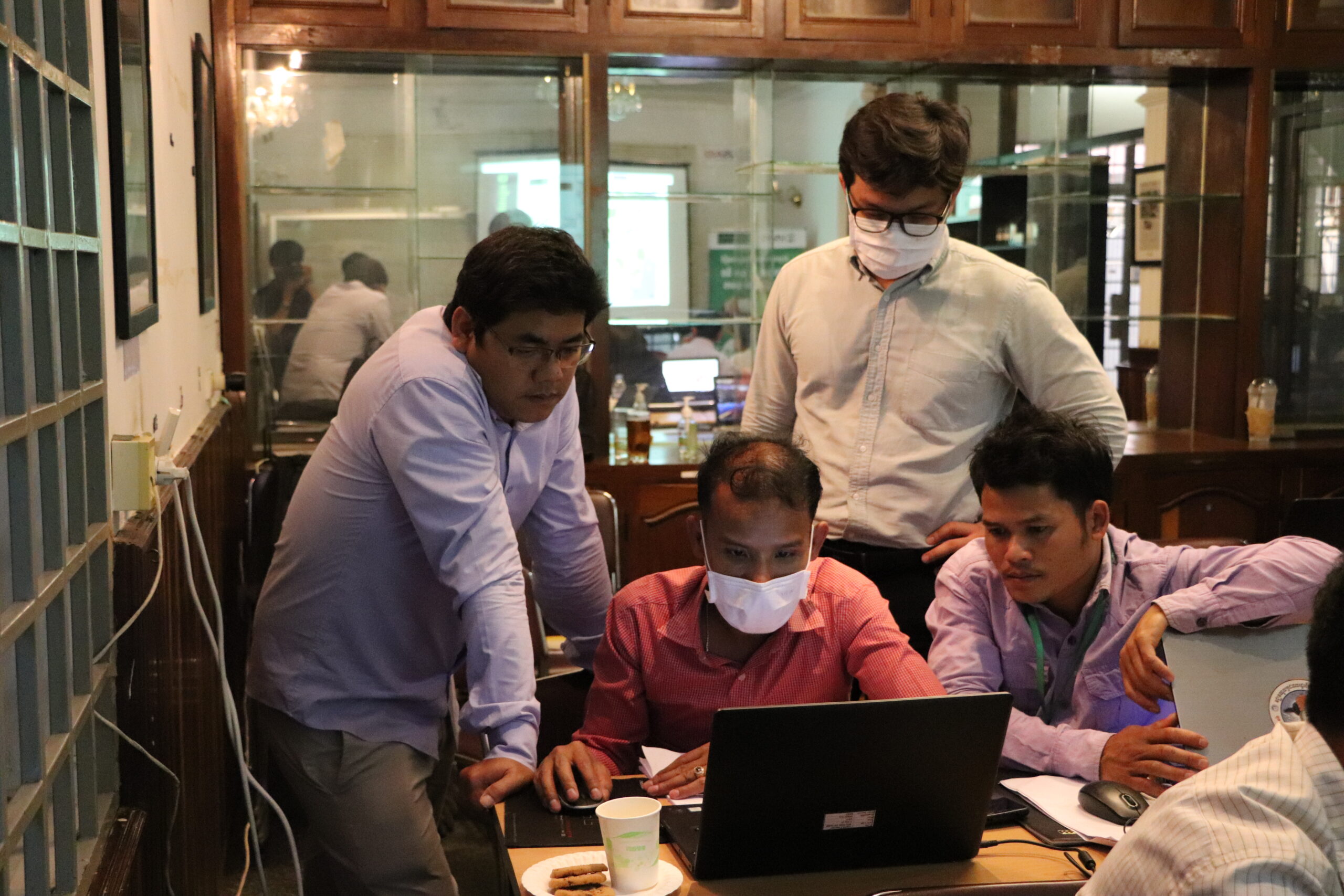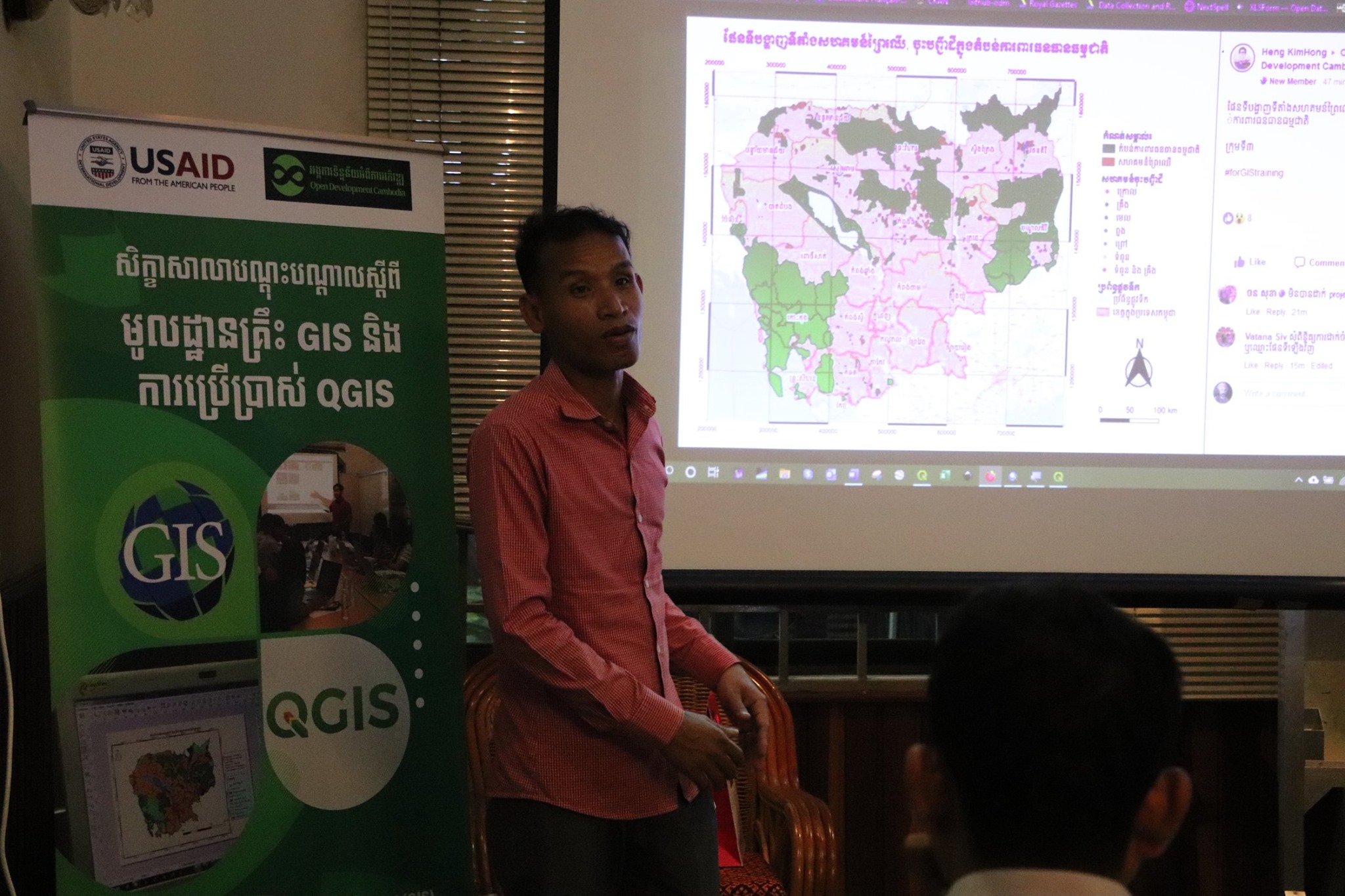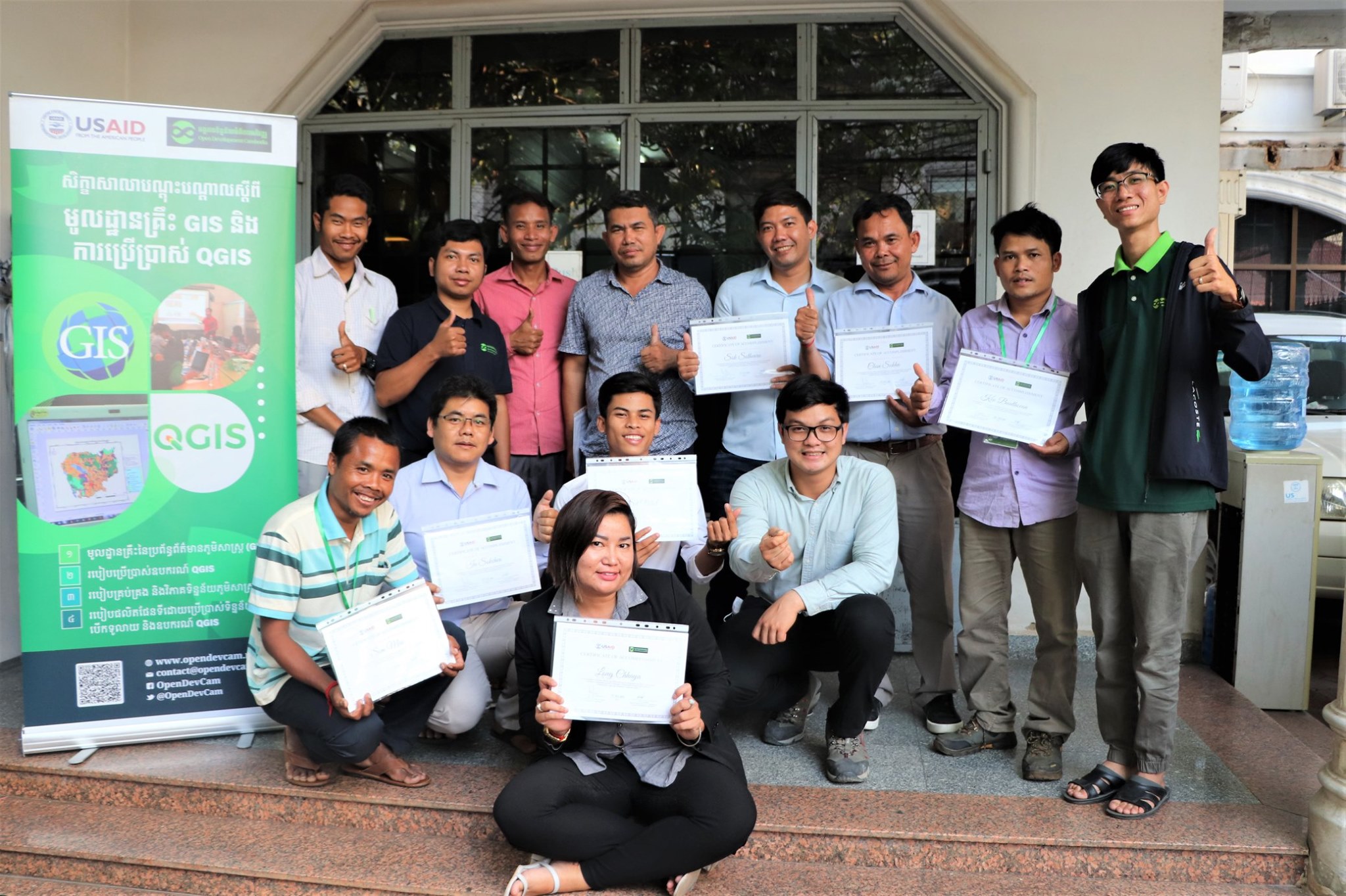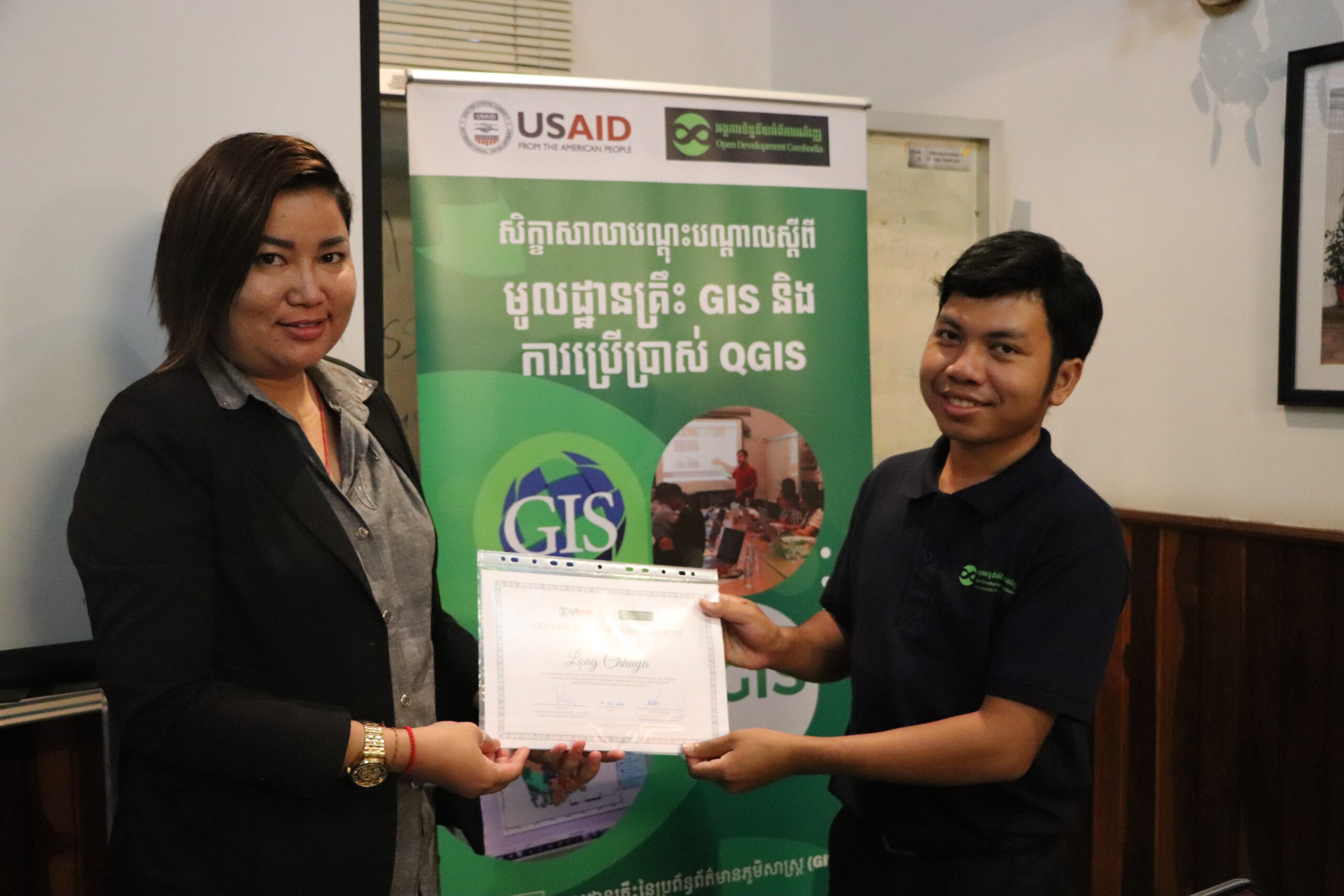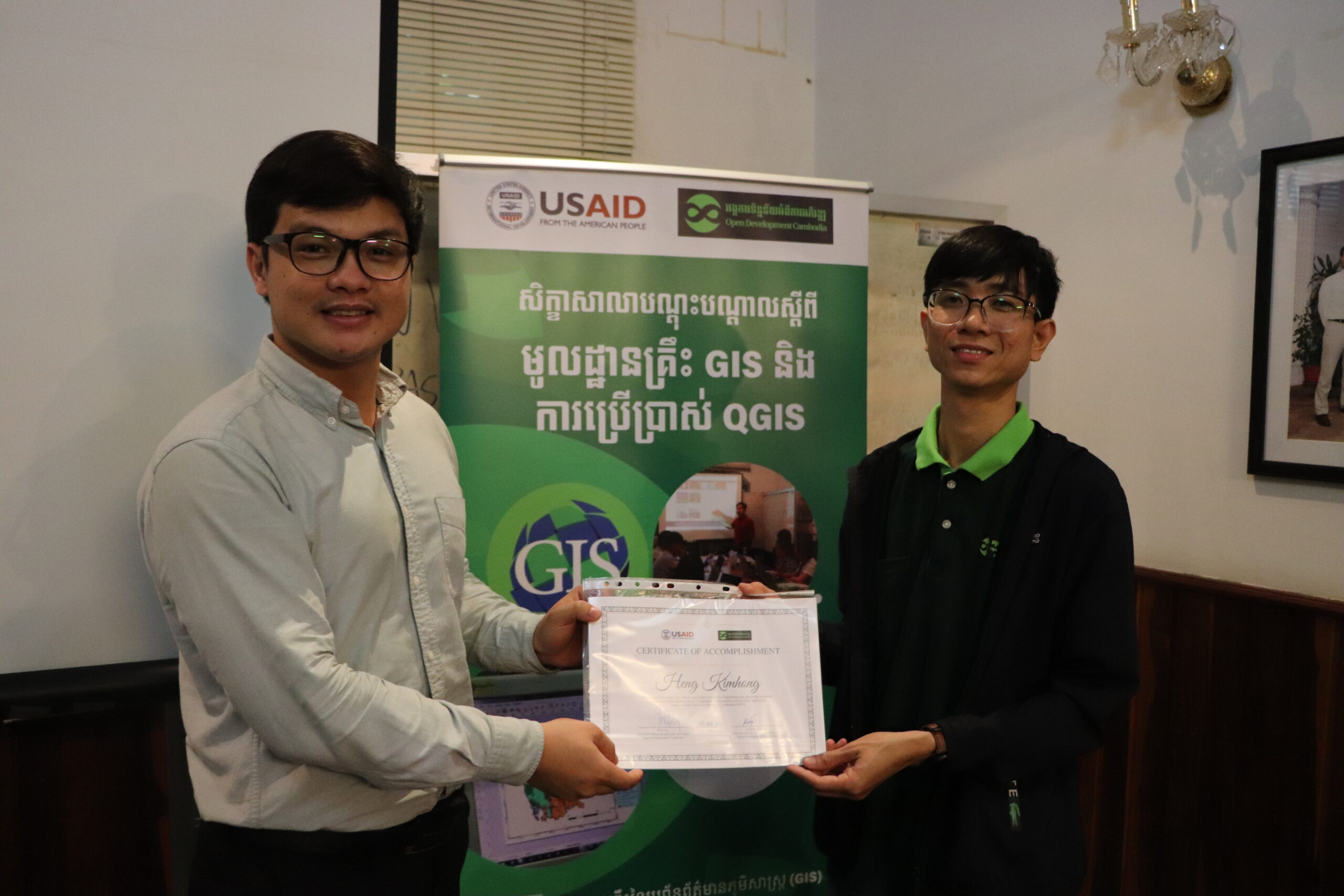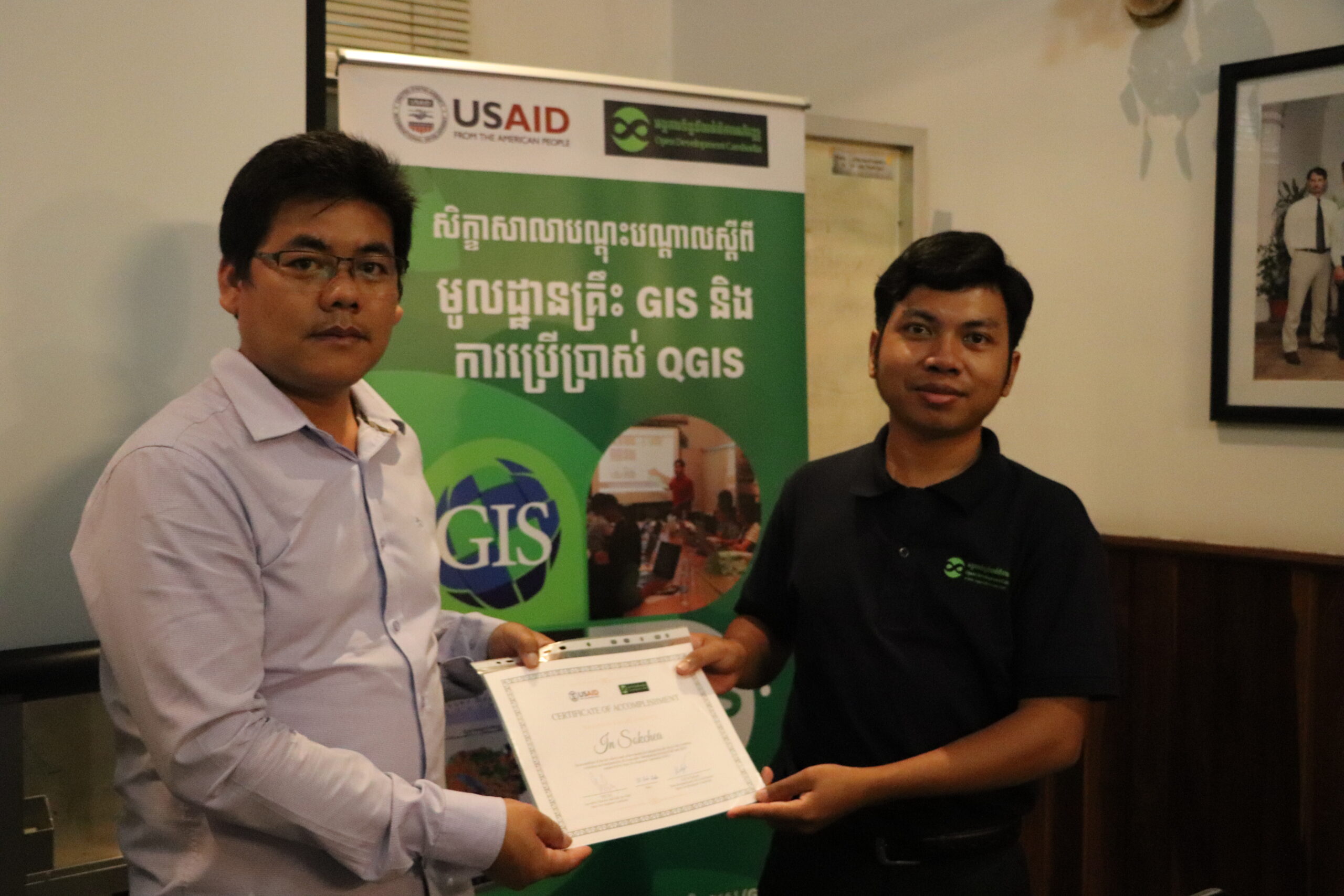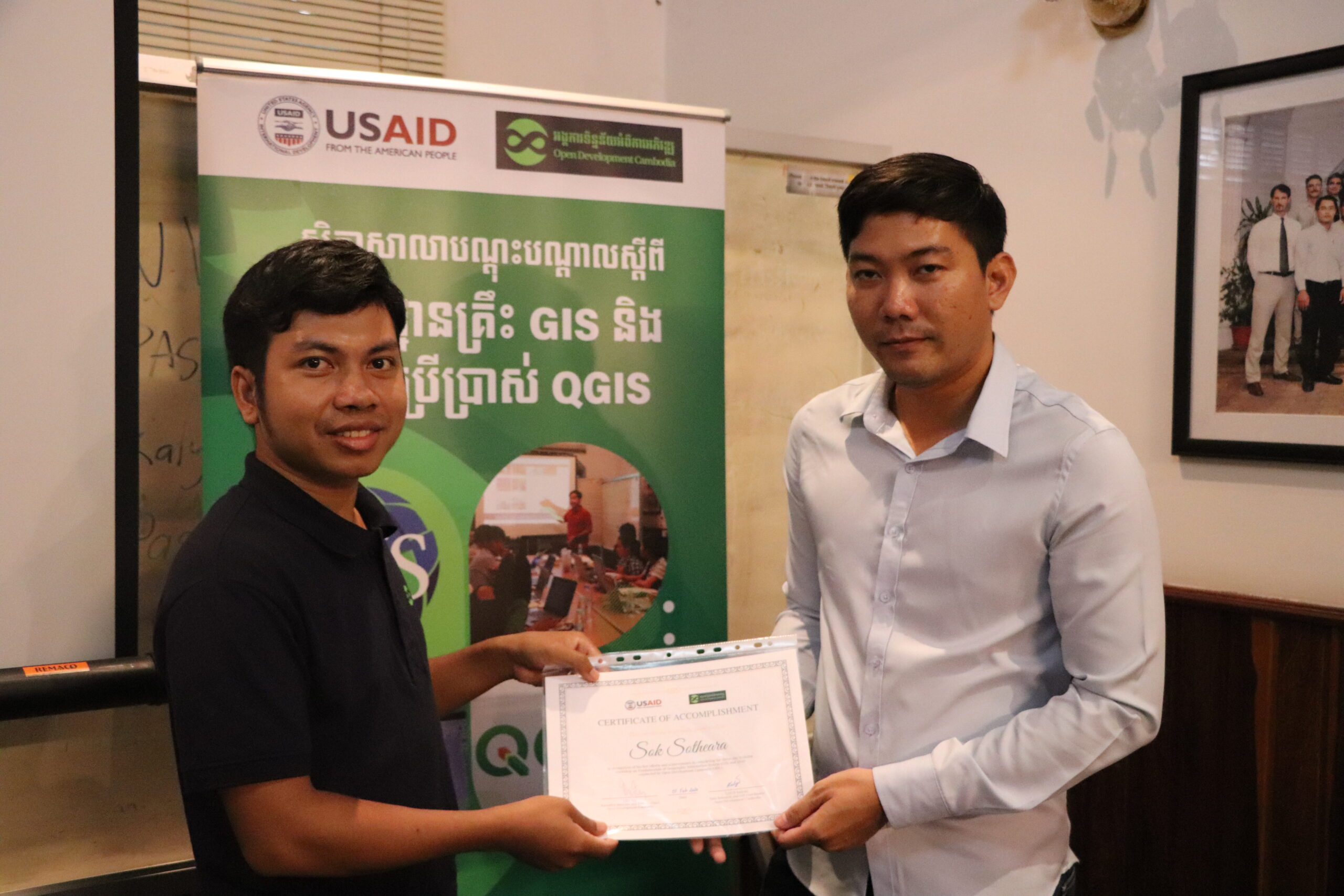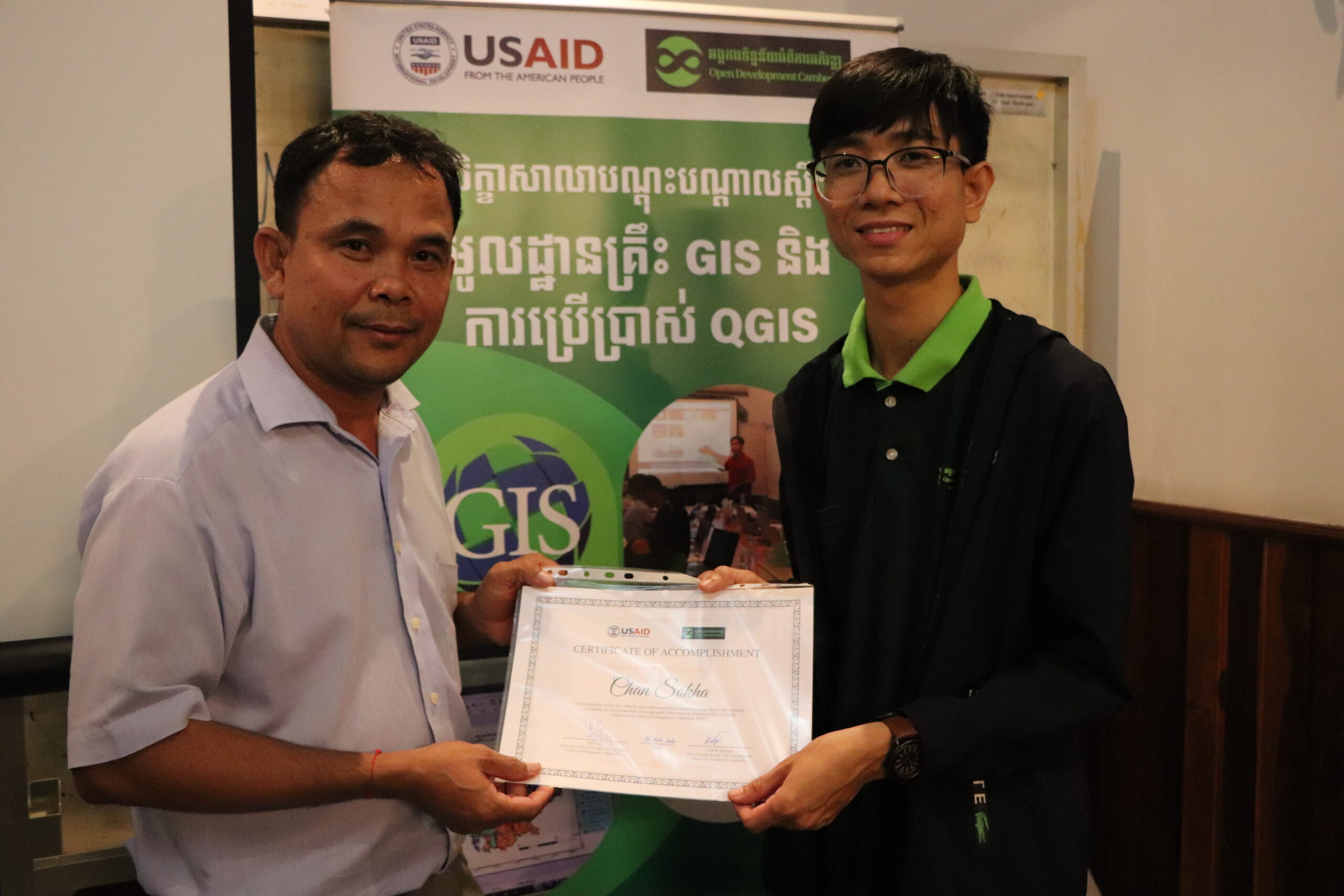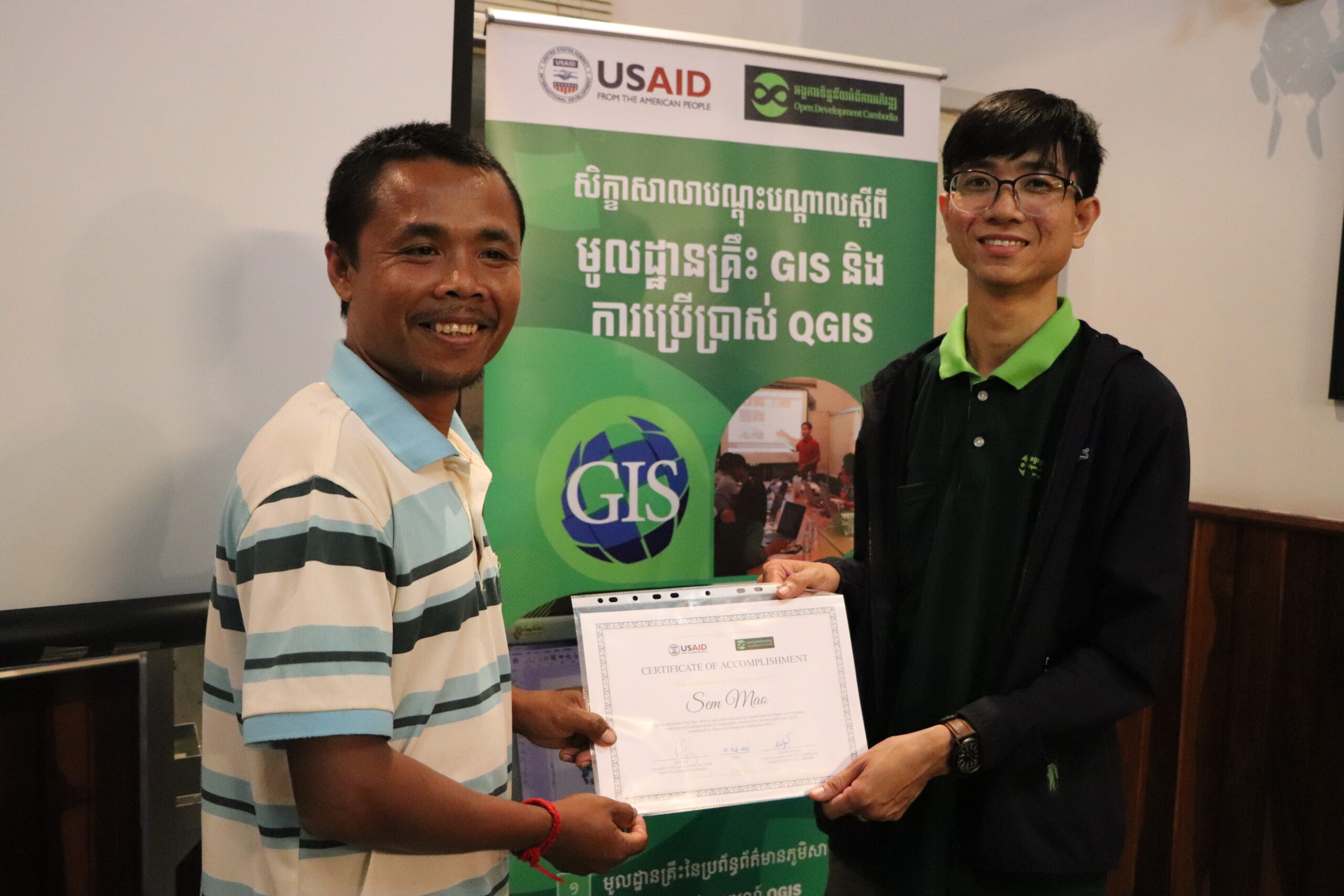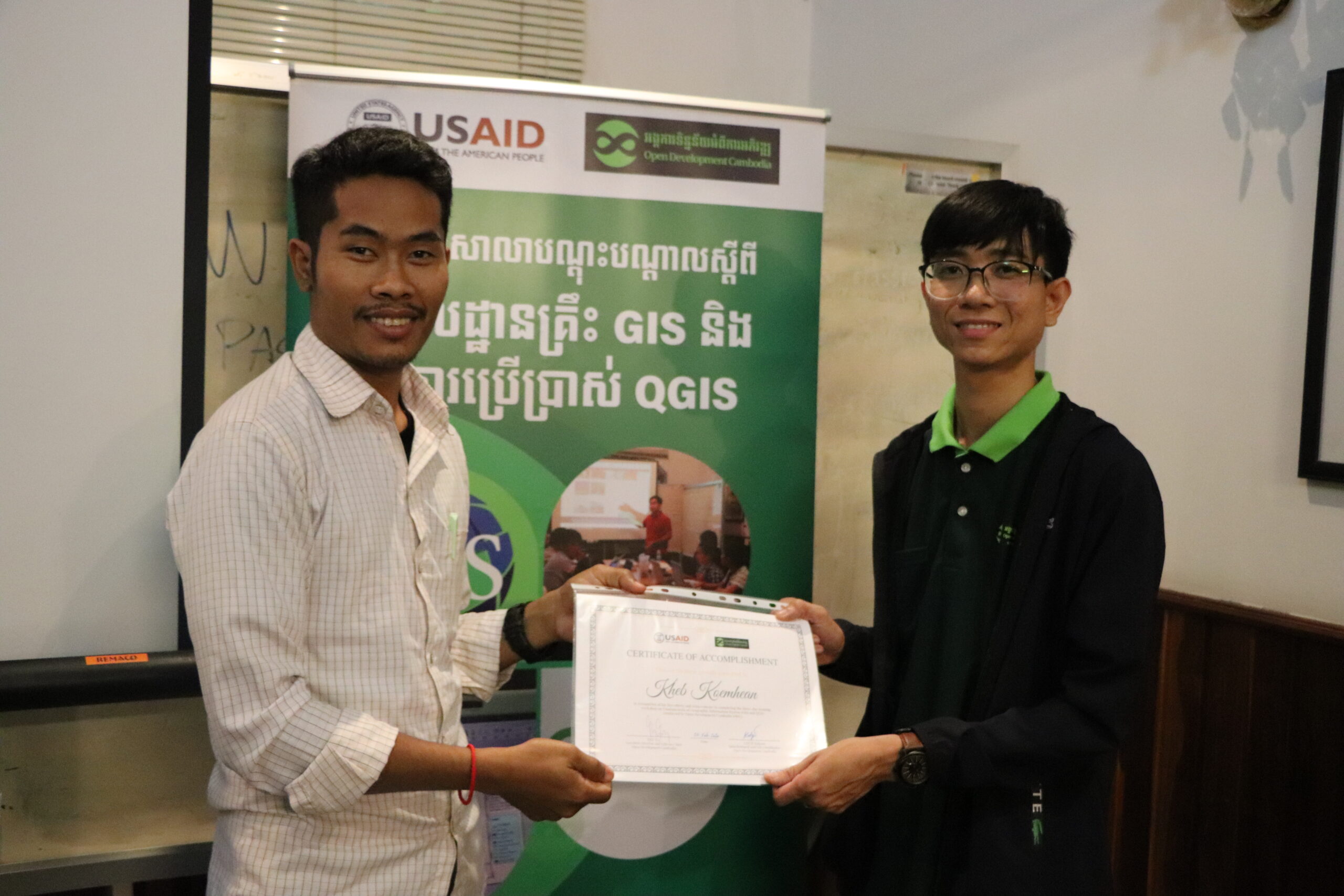GIS training for improved natural resources management in Cambodia
The fundamental GIS training was successfully conducted at ODC office, Phnom Penh, from 03 to 05 February 2020. A number of civil society organizations have been invited to join this three-day training. Those organizations include Build Community Voice (BCV), People Center for Development and Peace (PDP Center), My Village (MVi), Community Empowerment and Development Team (CEDT), Cambodia Civil Society Partnership (CCSP), Cambodian Institute for Research Rural Development (CIRD), and 3S Rivers Protection Network (3SPN). The training was gathered by twelve people, who are actively in working on the land, natural resources in northern areas of Cambodia, and three among them are from the Punorng indigenous group. This mapping training workshop is implemented through generous funding support from the United States Agency for International Development (USAID) through East-West Management Institute (EWMI) under the Cambodian Civil Society Strengthening (CCSS) project.
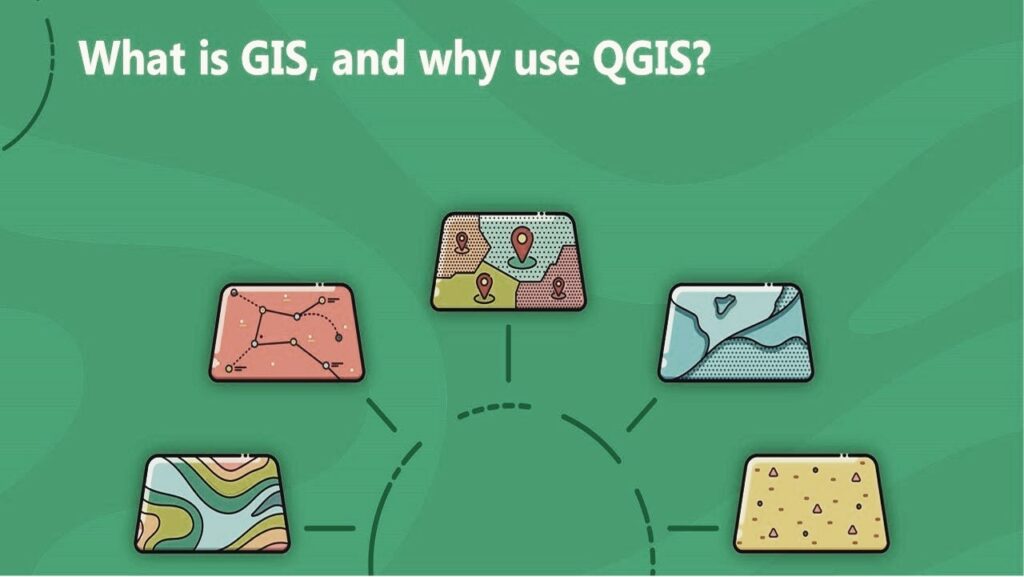
The main objectives of the training are to giving the basic-knowledge on collecting and managing various types of geographic information systems (GIS), analyzing locations and manipulating visual information using maps that facilitate solving complex problems in geographical work. All trainees will also gain a deeper understanding of the application through the demonstration how to use the QGIS program. ODC believes that this mapping capacity building will contribute to the development and promotion of livelihoods and the quality of life of indigenous communities and, in particular, sustainable natural resource management in the Kingdom of Cambodia.
The trainers have designed the google classroom for the participant to track the information, materials, and tasks of the whole GIS training. The first day, the trainer gave the lecture review on fundamental of GIS to the trainee in order to understand about the function of GIS, why the GIS is useful in working project and how important it is. On the second day, some practical aspects were provided to the trainees such as how can they import the vector and raster data to QGIS, Data styling with labeling, styling symbol, and how they represent those data with categorized and graduated style. On the final day, the trainees were allowed to create the vector data and used the Geoprocessing tools in QGIS to process any data as their needs, and they also learned how to design a custom map layout. All the trainees were asked to form into three groups to discuss and work with their team members to use QGIS and data available on ODC website to design a map layout of natural resource map.
Challenges were encountered in every corner of all the training event including pre-training preparation, mainstreaming of gender and ethnic minorities, different level of digital knowledge and experiences and post-training assessment.
Pre-Training preparation:The challenge at this stage is training material preparation. The curriculum of training was built from scratch, starting with output and feedback from the stakeholder consultation workshop to conducting the pre-training assessment, and the training agenda and presentation were carefully revised several times to ensure the needs and meet the expectation of participants in integrating the GIS application tool in their organization and as well as into their project implementation.
Mainstreaming of gender and ethnic minorities: ODC commits to mainstreaming at least 30% of women and 20% of ethnic minorities in the beneficiary target group to the training, however, only one woman and three Punorng indigenous people have taken part of this mapping training. The involvement of ethnic minorities is equal to 25%, which is very good number. However, woman involvement is still very low.
Different level of digital knowledge and experiences: The different level of digital knowledge of each trainee is also one the most considerable challenge. Some participants, who has basic knowledge of GIS/QGIS and experience in self-exploration on computer program, tend to learn faster that people have not been doing self-learning on using such as QGIS or other computer programing before, and the extra support both time and guiding example from the coach is highly requested.
Post-Training assessment: Though the training successfully finished, the post-training assignment to capture the trainee’s capacity is needed. The assignment aim to push them to continue doing more self-research and self-exploration in QGIS tools to accomplish work on their own.
Post-Training update
Recently, while most of our mapping trainees are still not yet having the opportunity to create the map, a few of them have already started integrated their mapping skill to their organization work as well as project implementation. One of our outstanding trainee, who is the only one female in the training class, Ms. Long Chhaya, Program Officer from the Cambodia Civil Society Partnership (CCSP) Organization, has produced a map of the target project areas for her organization by using the QGIS mapping tool. Below is the attached of her created map.
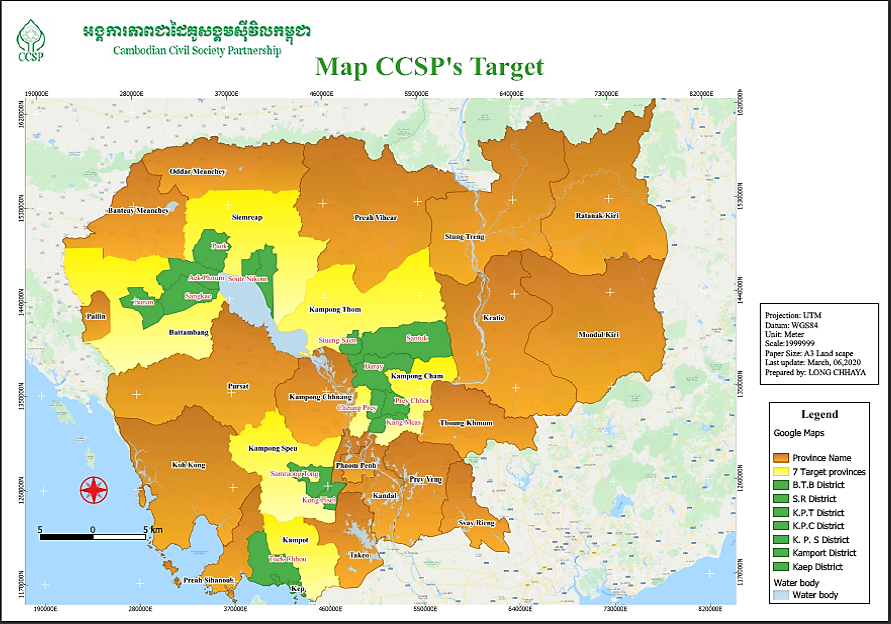
Map of the target areas of the Cambodia Civil Society Partnership (CCSP) Organization, produced by a GIS trainee, Ms. Long Chhaya, CCSP Program Officer.
Also, another of the mapping trainees from Build Community Voices (BCV), Mr. In Sokchea, Project Coordinator based in Kampong Chhnang province, has also used the QGIS mapping tool to produce some simple map after the training too.
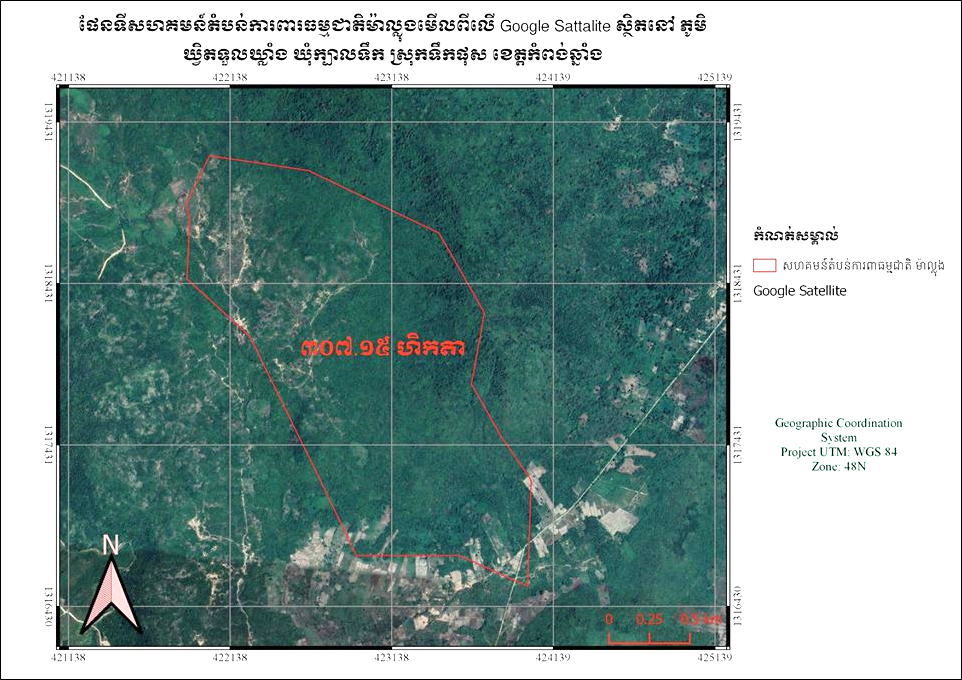
Map of Ma Long Community Protected Area (CPA) in Toul Klang village, Kbal Toeuk communce, Toeuk Phos district, Kampong Chhnang Province. Produced by Mr. In Sokchea.
Please enjoy watching the video and listen to the opinions of the participants on the training workshop on Fundamentals of Geographic Information System (GIS) and QGIS as the following:
Here is also some photos of the participants, who has accomplished the three-day training, during the certificate delivery session.
